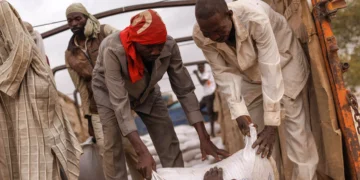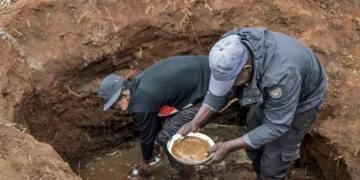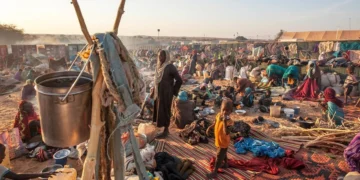Blitz Bureau
NEW DELHI: AS global powers scramble for critical minerals, African countries are pushing for new investment to process more of their own raw materials and meet their people’s demands for economic growth and jobs, analysts say.
Africa has around 30% of the world’s mineral reserves, including cobalt, lithium and nickel. “This is an unprecedented opportunity for Africa to get on the value-chain bandwagon,” said Hany Besada, senior fellow at the Firoz Lalji Institute for Africa at the London School of Economics and associate professor at the Wits School of Governance.
The International Energy Agency expects lithium demand to grow fivefold by 2040, graphite and nickel demand to double and demand for cobalt and rare earth elements to increase by 50% to 60% by 2040.
Zimbabwe, Africa’s top lithium producer, has been nudging mining companies to process the minerals in the country to help lift its economy.
“We are creating new jobs, not only in the mining sector, but in the value addition of our minerals,” Evelyn Ndlovu, minister of environment, climate and wildlife, told the Thomson Reuters Foundation. “We have got a lot of people coming in to invest in Zimbabwe.”
China’s Zhejiang Huayou Cobalt said in October it would start producing lithium sulphate during the first quarter of 2026 from its new $400 million plant in Zimbabwe. At the United Nations’ COP30 climate talks in Brazil in November, African countries hope to win support, especially from the Global South, to ensure demand for the minerals fuelling the digital economy and clean energy transition translates into growth, jobs and development.
Africa “wants to be a meaningful participant and beneficiary of the green economy,” said Ibrahima Aidara, deputy Africa director at the National Resource Governance Institute. “That means an industrial policy that creates jobs, protects rights and enables countries to climb the value chain and not be trapped at the bottom.” Aidara pointed to the Democratic Republic of Congo, which supplies 70% of the world’s cobalt. Across Africa, barriers to mineral processing – called beneficiation – include a lack of electricity, high tariffs between African countries, infrastructure gaps and cumbersome customs procedures.


























